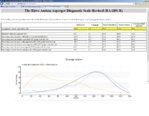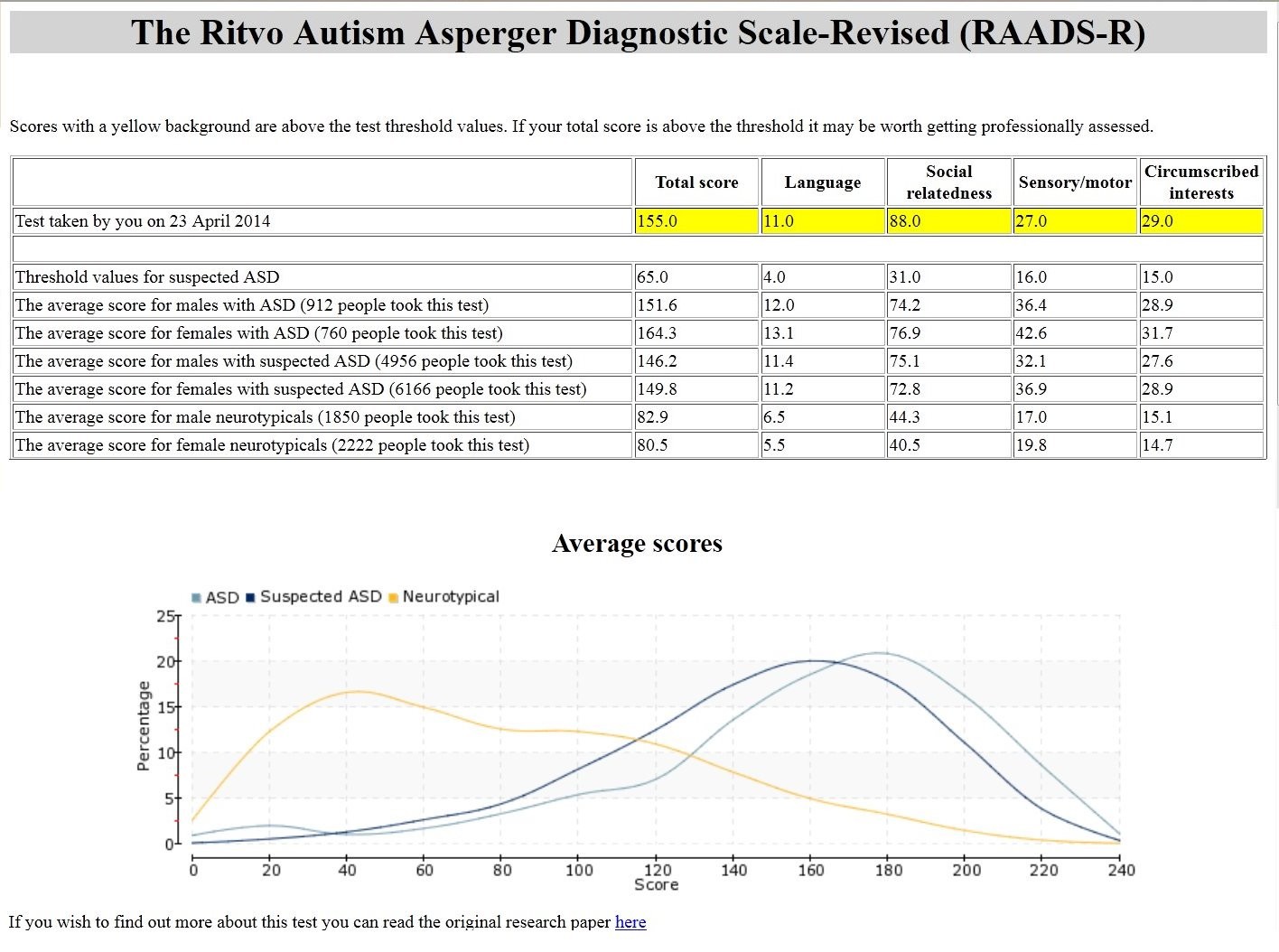I found the questions confusing, by which I mean I didn't know the answers to some of them.
For instance it asked if I know when someone is bored with what I'm saying.
Well, it seems to me that people are never bored with what I say. Is that because A. they really aren't (and I am able to judge that correctly)? Or is it because B. they actually are, but I don't know that? Or is it because C.I never actually talk to people? (Answer C is the most likely)
it also asks if things were true now and when you were young, or are onely true now, or were true when you were younger than 16.
What if something was true only till I was 27? (two years ago) It lasted much longer than my 16th birthday. But it wouldn't be true now. so which option should I choose?
What if I think I am putting myself in someone else's shoes, but, unknown to myself, I'm actually dead wrong about what their shoes even are? (okay, that was a messed-up sentence. Deadly to try to keep using the wording of a simile.)
One of the questions is "Sometimes I talk too loudly or too softly and I am not aware of it."
If I'm not aware of it, how can I become aware enough to answer the question?
(The answer is Yes. I know because people have pointed it out to me. But what if no one tells you?)
How am I supposed to know if I speak with a normal rythm?
A lot of these questions would be more accurately filled out if someone else was filling them out in my place ("Does she talk too loudly or softly?" "Does she speak in a normal tone?")
P.S.
I took it twice with totally different results. And I have no idea which time was more accurate, because in regards to some of the questions, I'm not sure what were the correct answers.



